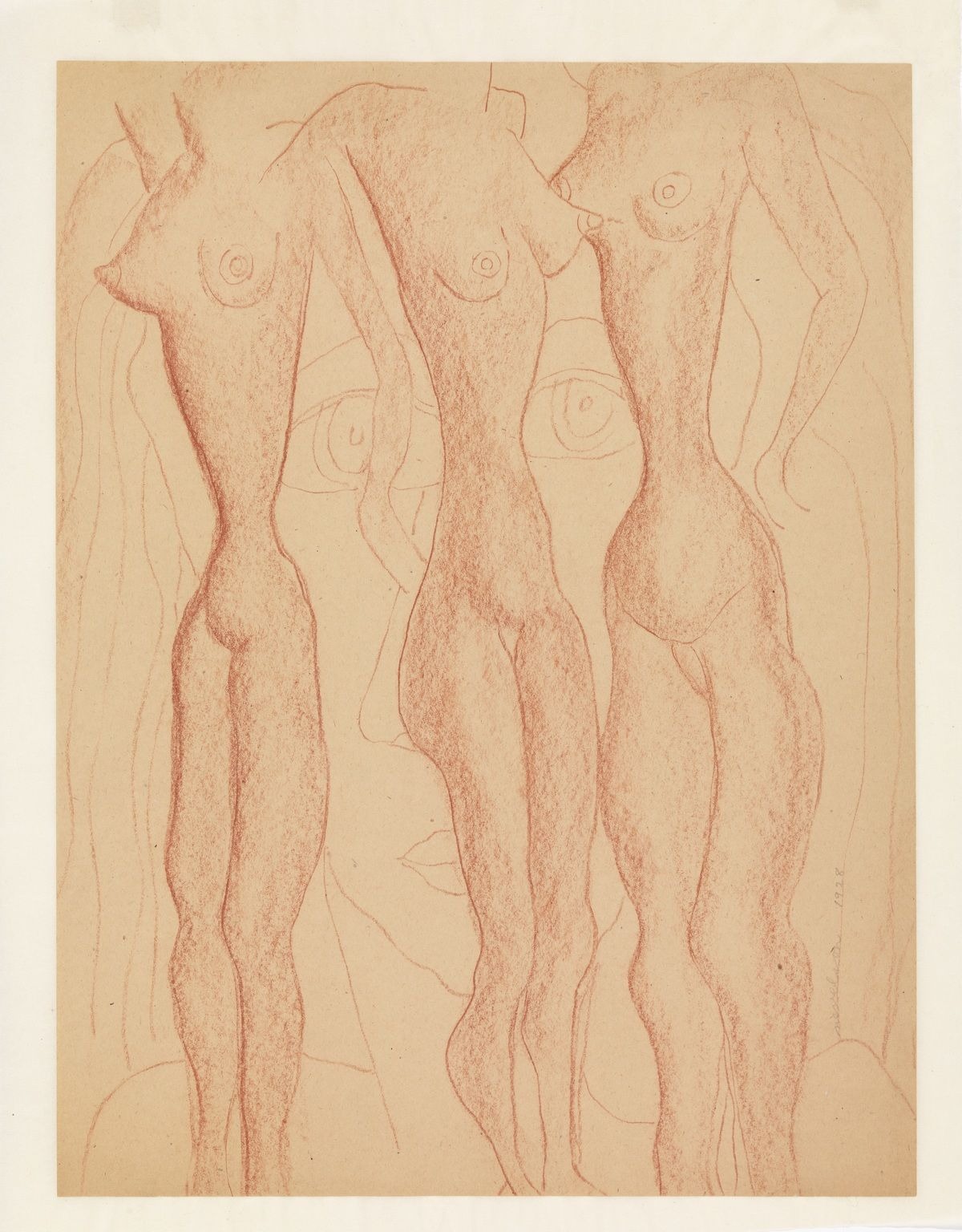Louise Nevelson
The Face in the Moon: Drawings and Prints by Louise Nevelson
20 Jul - 08 Oct 2018

Louise Nevelson (1899-1988), Untitled, 1928.
Fabricated red chalk on paper: sheet, 17 5/8 × 13 3/8 in. (44.8 × 34 cm); mount: 19 9/16 × 15 1/2 in. (49.7 × 39.4 cm).
Whitney Museum of American Art, New York; gift of the artist 69.220.
© 2018 Estate of Louise Nevelson/Artists Rights Society (ARS), New York
Fabricated red chalk on paper: sheet, 17 5/8 × 13 3/8 in. (44.8 × 34 cm); mount: 19 9/16 × 15 1/2 in. (49.7 × 39.4 cm).
Whitney Museum of American Art, New York; gift of the artist 69.220.
© 2018 Estate of Louise Nevelson/Artists Rights Society (ARS), New York
Louise Nevelson (1899–1988), an artist best known for her monochromatic wooden sculptures, produced a distinctive body of works on paper over the course of her long career. Drawn entirely from the Whitney’s collection, this exhibition follows her work in drawing, printing, and collage, from her early focus on the human body through her progression into abstraction.
Nevelson frequently used unconventional or recycled materials. In her prints, she layered scraps of fabric to create deeply textured environments containing mystical figures and architectural forms. Her paper collages, like her sculptures assembled from wooden objects, reconfigure the disparate materials from which they are composed, including scraps of paper and foil, into unified, unexpected compositions. Interested in the physical constraints of objects, Nevelson sought to transform the materials that she used and the subjects that she depicted. She believed that art could reorient one’s relationship to the built and natural world, challenging us to see our environments differently through her work.
Organized by Clémence White, curatorial assistant
Nevelson frequently used unconventional or recycled materials. In her prints, she layered scraps of fabric to create deeply textured environments containing mystical figures and architectural forms. Her paper collages, like her sculptures assembled from wooden objects, reconfigure the disparate materials from which they are composed, including scraps of paper and foil, into unified, unexpected compositions. Interested in the physical constraints of objects, Nevelson sought to transform the materials that she used and the subjects that she depicted. She believed that art could reorient one’s relationship to the built and natural world, challenging us to see our environments differently through her work.
Organized by Clémence White, curatorial assistant
